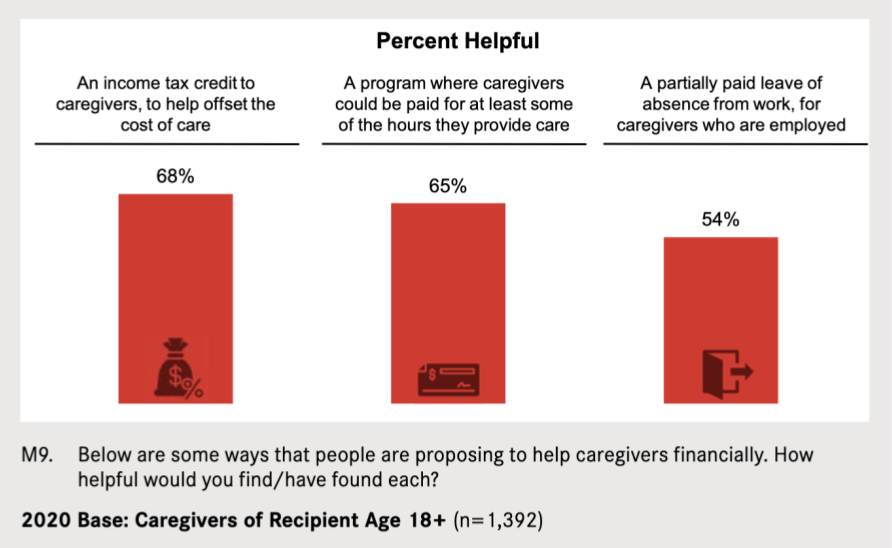Does Social Security Cover Any Caregiving Costs?
Jason Resendez, Next Avenue’s resident expert, and President and CEO of the National Alliance for Caregiving, tackles your caregiving questions
This column regularly appears in Next Avenue's new caregiving newsletter, The 24/7 Caregiver. Sign up here.

Q: Does Social Security cover any caregiving costs? What other policies or government assistance programs can I look into and learn more about?
— Mari K.
As the demands for unpaid family caregiving continue to grow, it is no surprise that covering care costs is a common pain point for families. According to Caregiving in the U.S. 2020, research from the National Alliance for Caregiving and AARP, more than 50% of family caregivers support public policies to help offset the costs of caregiving.
In fact, goal 4 of our first-ever National Strategy to Support Family Caregivers is focused on ensuring financial security for family caregivers. As the strategy makes clear, "family caregivers face multiple financial threats associated with their family caregiving responsibilities." Federal and state-funded programs are critical to easing this hardship.

While Social Security does not directly pay for caregiving costs, caregivers can use their Social Security benefits to help cover the costs of in-home care and home health services.
Additionally, a spouse or family member who is the primary caregiver for a loved one who is disabled or seriously ill may be eligible for Social Security benefits to help offset the costs of caregiving. Eligibility for these benefits depends on a number of factors, including financial need, state of residence, income and assets. Some applicants may only qualify for benefits from one program, while those with the most financial need may be eligible for both Supplemental Security Income (SSI) and Social Security Disability Insurance (SSDI).
Here are some key resources that may help with caregiving costs:
- Social Security Disability Insurance (SSDI): This is a federal program that provides benefits to people who are unable to work due to a disability. SSDI benefits can help pay for the cost of caregiving, such as paying for a home health aide or respite care. Learn more here.
- Supplemental Security Income (SSI): This is a federal program that provides benefits to low-income people with disabilities. SSI benefits can also help pay for the cost of caregiving. Learn more here.
- Medicaid: This is a joint federal and state program that provides health insurance to low-income individuals and families. In some states, Medicaid may cover the cost of home and community-based services (HCBS) for people with disabilities or chronic conditions. These services can include personal care, respite care and transportation. Learn more here.
- Medicare: This is a federal health insurance program for people age 65 and older, as well as people with certain disabilities. Medicare does not typically cover the cost of long-term care, but there are some exceptions. For example, Medicare may cover the cost of home health care if the person is homebound and needs skilled care. Learn more here.
- Veterans Affairs (VA): This department provides a variety of benefits to veterans and their families, including assistance with caregiving. For example, the Program of Comprehensive Assistance for Family Caregivers provides enhanced clinical support for family caregivers of eligible veterans who are seriously injured, including personalized care coordination, respite care and financial assistance. Learn more here.
If you are a caregiver, it is important to explore all of your options for financial assistance. While the need outstrips the available assistance, there are options that help make caregiving just a little easier.


